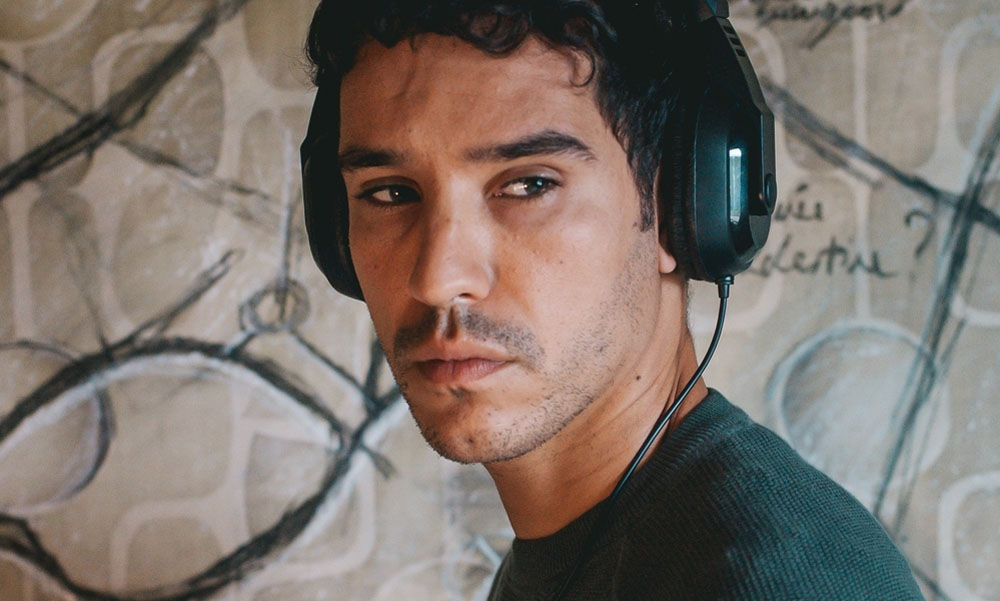“I feel far away from everything here,” Hamid (Adam Bessa) confesses to his mother over FaceTime, with the ongoing strife in Syria making it unlikely that the two will be in the same room any time soon, if ever again in “Ghost Trail.” While she remained closer to home in Beirut, Hamid resettled in Berlin and is conspicuously free of the concerns that most migrants shoulder on screen, holding a steady job and tucked away in seeming security as he has the option to shut off the nightly news should overhearing the horrors from home become too intense. Still, in Jonathan Millet’s absorbing potboiler, there’s something fundamentally broken inside Hamid, try as he might to hold it all together after escaping a bomb blast that took the lives of his wife and daughter, and in reflecting a fragmented experience in which pieces will always be missing, the filmmaker inventively constructs a powerful whole.
Millet’s ingenuity sneaks up on you as Hamid’s own work is cloaked in secrecy. First seen shoveling rubble in Strasbourg, he is asked to dig up dirt in an entirely different way as he is recruited by a ragtag collective of exiled Syrians such as himself looking to bring justice to those who perpetrated war crimes that scattered abroad. Hamid is assigned to find Sami Hamma, a known torturer, who is thought to have relocated to Europe, and rather than ever make him feel he’s in danger, at least physically, by pursuing the brute, Millet allows Hamid’s search to reveal the pervasive fear that exists amongst the diaspora as few are willing to answer his questions as he visits welcome centers, unwilling to trust anyone after what they’ve experienced. Even amongst the group he works for, Hamid can feel a reticence as he checks into an internet cafe and reports back under the guise of massive multiplayer online game in which everyone can keep a distance as they converse without being seen, with the fact that it’s a “Call of Duty”-esque war game acting as an elephant in the room.
It isn’t the only way that “Ghost Trail” uniquely conveys a sense of isolation against the reality that the world can’t be kept at the distance as life moves on, with a great deal of attention paid to the sound design where a slight bit of distortion becomes a vivid expression for the haze Hamid has to move through on a daily basis and the slippery central narrative idea that he is the only one allowed to hold his own truth, having to put on a variety of names to perform his assignment yet parsing out true personal details amidst the lies he has to tell when the latter doesn’t come naturally. Bessa delivers a captivating, enigmatic turn as the character who can’t be himself fully with anyone, from his mother who he has to assure he’s doing well when he clearly isn’t, to Yara (Hala Rajab), a fellow refugee whose trust he earns when they both can quote Syrian literature when presenting himself as a former professor, but can’t reveal what he’s up to now. Although Hamid is paralyzed by the past, “Ghost Trail” has its eyes fixed squarely on how complicated his future is, making a taut pursuit of a fugitive pale in comparison to a search for who he is after displacement.
“Ghost Trail” will screen again at the Cannes Film Festival as part of Le Semaine De La Critique on May 15th at 2:15 pm and 7:45 pm at Miramar, May 16th at 9 am at Licorne and 7 pm at Le Raimu and May 24th at 2 pm at Studio 13.




